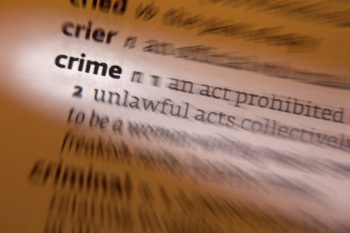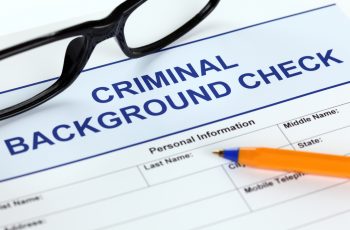Skilled Attorneys Providing Representation in Asbury Park, Belmar, Colts Neck, Middletown, Eatontown, Freehold, Hazlet, Holmdel, Howell, Lake Como, and across Monmouth County Area

While infractions, misdemeanors, and felonies are the three main categories of criminal charges in New Jersey, there are separating factors within those categories depending on the type of charge or amount of jail time associated with the charge. The difference between a misdemeanor and a felony can often be determined by the amount of jail time the charge carries.
Infractions
Infractions are charges issued to minor crimes. Infractions are issued when someone breaks a minor law or ordinance. While they do carry consequences, infractions are rarely documented on your permanent record, and very rarely do they result in jail time. Consequences for infractions generally include payment of fines. However, any charge for which a person must serve five or fewer days in jail is also considered an infraction under federal law. Some examples of infractions are most types of traffic violation tickets, trespassing charges, littering charges, and other minor offenses. When an infraction is ticketed, generally, the process for payment of a fine is written on the ticket, and no further action must be taken. As is the case in all legal matters, the offense grows in severity if the infraction is not addressed and the legal fines are not paid.
As with misdemeanors and felonies, there are different classes of infractions. For example, moving violations in traffic law, non-moving violations in traffic law, and petty offenses are all classes of infractions. Offenses are generally placed within different classes based on the punishment or fine.
Misdemeanors
The next step up in severity is misdemeanors. In New Jersey, “misdemeanors” are separated into disorderly persons offenses and petty disorderly persons offenses. These offenses make up the “misdemeanor” label, as such charges are referred to in other states. Both classes of New Jersey’s misdemeanor charges are punishable by up to a year in jail and are tried at the municipal court level.
New Jersey Statutes 2C:1-4, which governs the different classes within the categories of offenses in New Jersey, states that both types of misdemeanors – petty disorderly persons offenses and disorderly persons offenses – do not constitute an actual crime, as it is defined in the New Jersey State Constitution. Because they are not technically crimes, they are tried at the municipal court level by a judge instead of a grand jury or other juries.
There are many examples of misdemeanors, including public intoxication, shoplifting, harassment, simple assault, vandalism, and lewdness. Disorderly persons offenses, both petty and otherwise, are the offenses in New Jersey that are most commonly prosecuted. Depending on the severity of the charge, the fault is considered a petty disorderly person’s charge or a disorderly person’s charge, each with a varying consequence, including up to a year in jail.
Felonies

To ensure that your rights are upheld, you must seek the support of a qualified criminal defense attorney.
Contact our Criminal Law Attorney for a consultation
If you are navigating a disorderly persons or indictable offense charge, we can help you ensure you receive a fair and minimum sentence.
At Chamlin, Uliano & Walsh, we successfully represent clients in Asbury Park, Belmar, Middletown, Eatontown, Freehold, Hazlet, Lake Como, and across Monmouth County Area.
For additional information on how criminal defense attorneys can assist you or someone, contact the West Long Branch, New Jersey office of Chamlin, Uliano & Walsh at 732-440-3950 or feel free to access our website.
